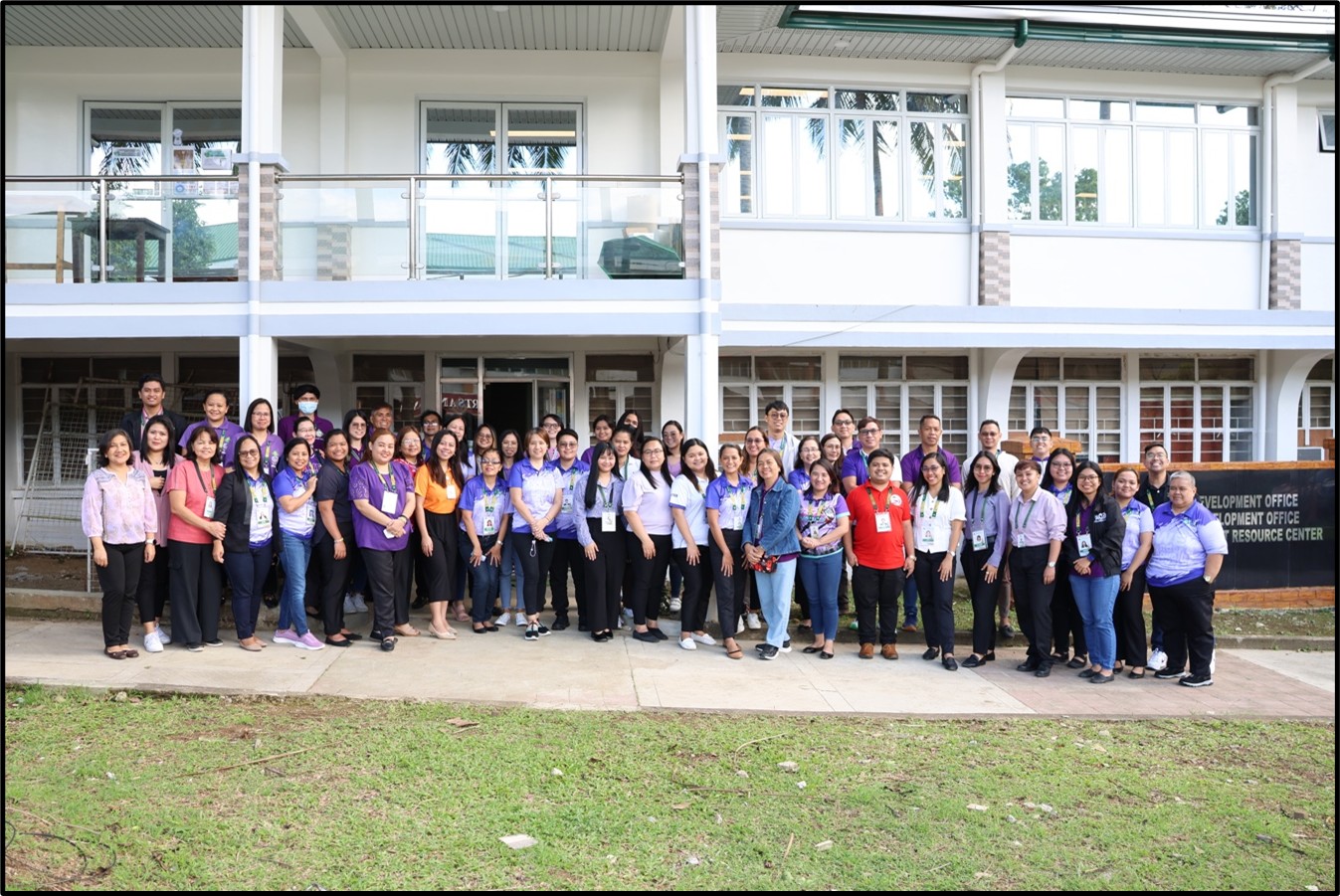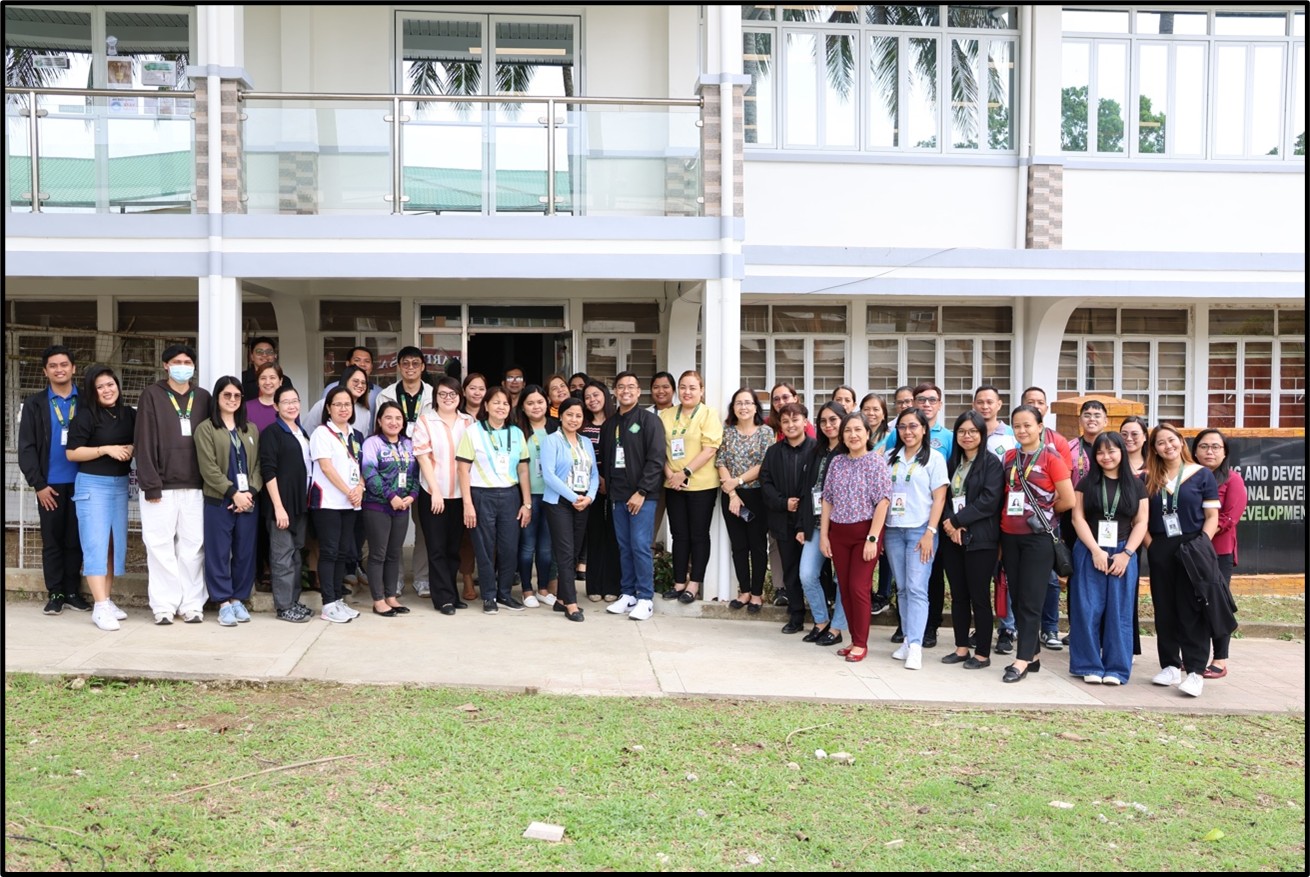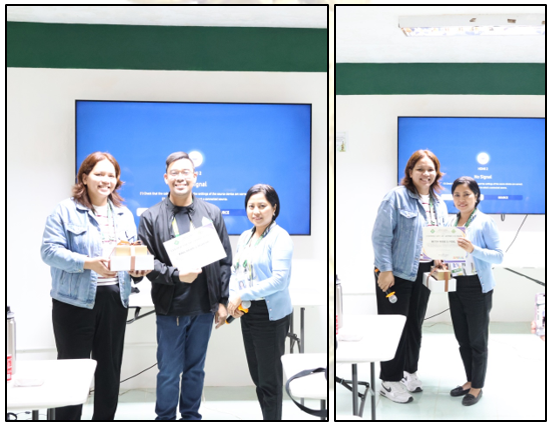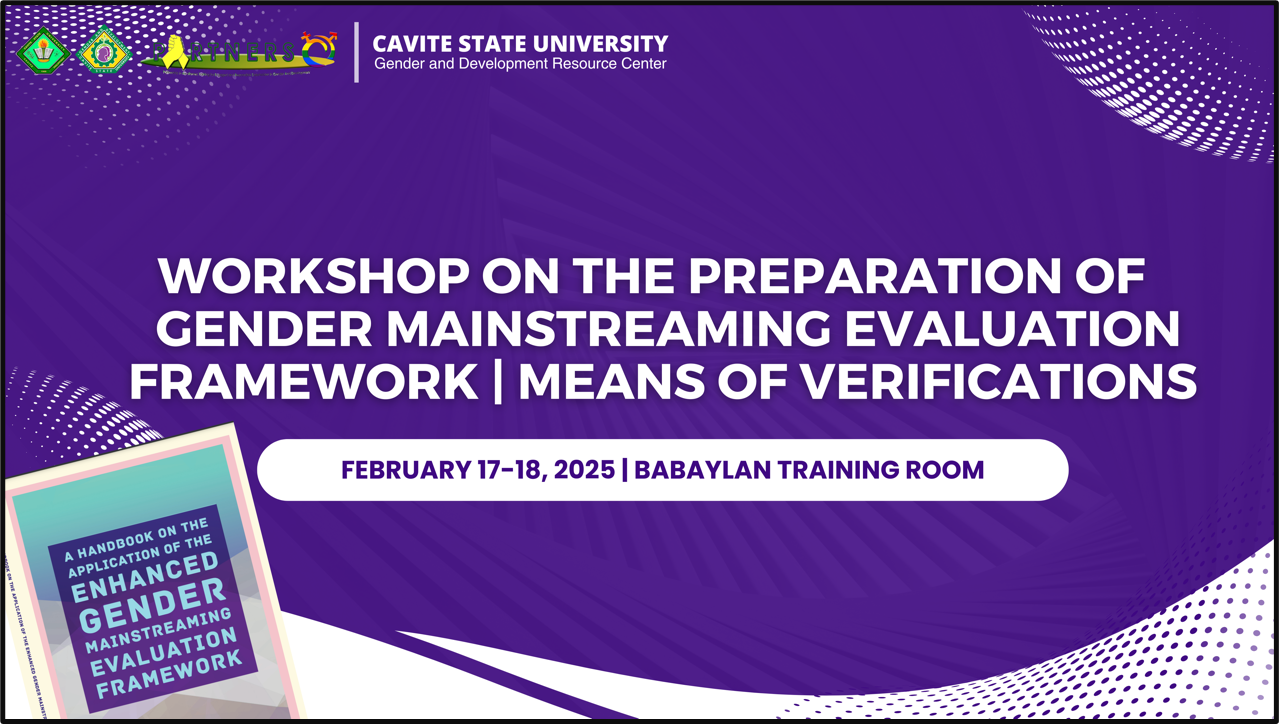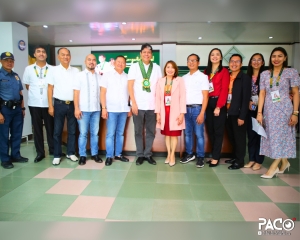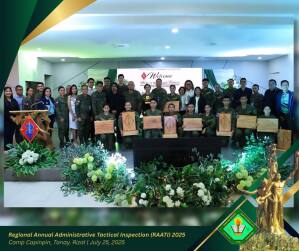![]()
The Cavite State University (CvSU), through its Gender and Development Resource Center (GADRC), held a “Workshop on the Preparation of the Gender Mainstreaming Evaluation Framework (GMEF) Means of Verifications (MOVs)” on February 17-18, 2025, at CvSU GADRC, Babaylan Training Room.
This activity aims to develop a thorough understanding of gender equality and gender and development (GAD) principles, strengthen trainers’ capacity to deliver GAD-related content effectively, and promote an inclusive and respectful environment for all gender identities and expressions.
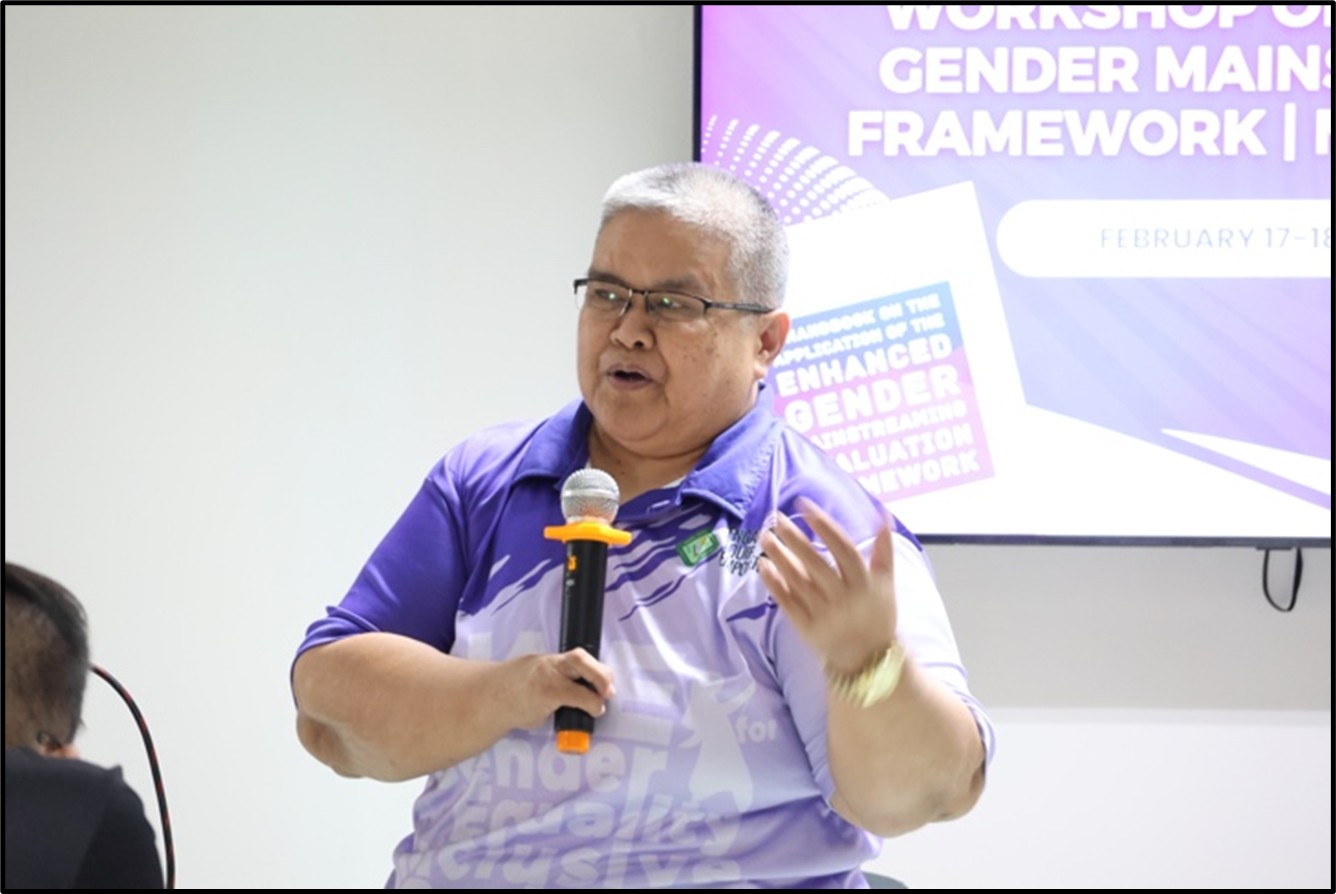
The event officially commenced with an opening message delivered by Dr. Susan G. Tan, GADRC Director, where she emphasized the utilization of GMEF within the university. It was then followed by the presentation of the workshop objectives by Ms. Ellaine E. Todoc, GADRC Staff.
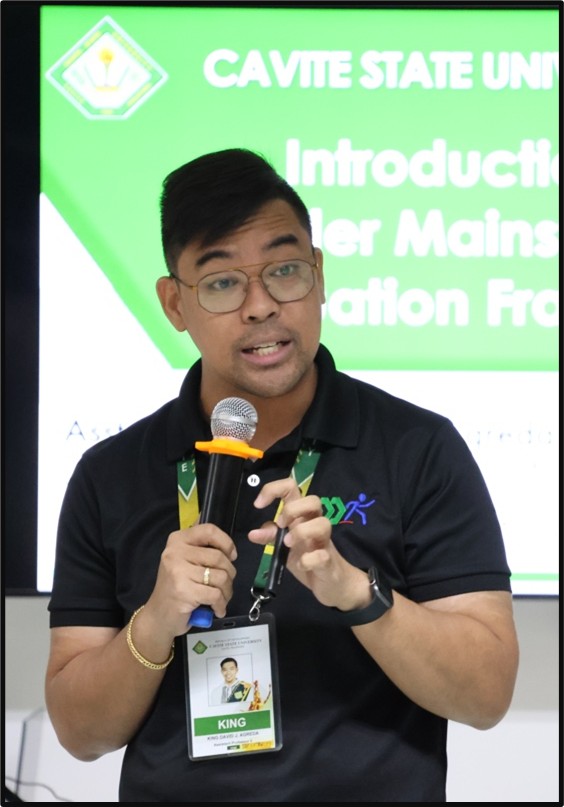
Mr. King David J. Agreda then led a comprehensive and practical workshop on GMEF where he emphasized the importance of integrating gender perspectives into institutional planning and budgeting processes to foster a more inclusive and equitable society.
On the second day of the workshop Ma. Criselda Vertudez, GAD Coordinator from Silang Campus, began by providing a recap of the topics discussed on Day 1, highlighting the key points as presented by Mr. Agreda.
Mr. Agreda then outlined how educational institutions can adopt a more gender-responsive approach by incorporating gender perspectives across four key dimensions:
Gender Lens Perspective – This approach involves analyzing gender dynamics, roles, and inequalities to understand their influence on experiences, opportunities, and outcomes. By applying a gender lens, institutions can prioritize marginalized groups, promote social justice, and ensure the equitable distribution of resources irrespective of gender.
Sustained Change through Comprehensive Strategies – Achieving lasting change requires the formulation and implementation of gender-sensitive policies, legislation, and institutional mechanisms that promote women’s empowerment and gender equality. Mr. Agreda emphasized that bureaucratic gender mainstreaming should be driven by leadership, with gender equality embedded into everyday operations and organizational culture. This process must be championed by top management and supported by all staff members.
Integrating Gender Perspectives in Institutional Programs – Effective planning and implementation of programs require the integration of gender considerations into the design and execution of institutional plans while allocating resources to gender-responsive activities.
Embedding Gender in Core University Functions – Mr. Agreda underscored the importance of incorporating gender perspectives into the core functions of universities, including instruction, research, extension, and production. This holistic integration ensures comprehensive GAD planning and budgeting. He introduced the GAD Focal Point System (GFPS), a proactive body tasked with promoting, coordinating, and overseeing GAD initiatives within the institution. The GFPS plays a vital role in the continuous implementation, monitoring, and refinement of GAD-related projects and policies.
Following the establishment or reinforcement of the GFPS, Mr. Agreda stressed the importance of GAD capacity building through regular training programs. These programs should include gender sensitivity workshops and practical training on gender analysis tools, equipping staff in the integration of gender perspectives into their work. He emphasized that training must be an ongoing process that adapts to the evolving needs of the institution and community, thereby fostering an inclusive organizational culture.
He also discussed the role of gender audits as a critical tool for evaluating the effectiveness of GAD initiatives. By utilizing sex-disaggregated data and gender statistics, universities can identify successful practices and areas requiring improvement. These audits, Mr. Agreda noted, are not simply compliance measures, but essential instruments for driving meaningful progress towards gender equality.
Mr. Agreda highlighted the significance of maintaining a GAD database for gender-focused data collection and analysis. A comprehensive database enables institutions to track their progress, identify gaps in gender equality, and allocate resources effectively to implement targeted interventions. Data-driven decision-making is essential to ensure that future initiatives align with institutional goals and national gender mandates.
He further emphasized the necessity of applying gender analysis in policymaking, strategic planning, and program implementation. He urged participants to critically assess current practices by evaluating access, roles, and decision-making processes within their institutions to ensure that all genders benefit equitably from policies and programs.
The session also explored the PCW Memorandum Circular No. 2016-03, which introduced the Enhanced GMEF—a comprehensive framework designed to assess the progress of gender mainstreaming efforts. Mr. Agreda explained that the tool assists agencies in evaluating their practices, identifying strengths and areas for improvement, and supporting the formulation of annual GAD plans and budgets. The GMEF is primarily intended for use by GFPS members, program implementers, and relevant staff involved in planning, assessments, and evaluations.
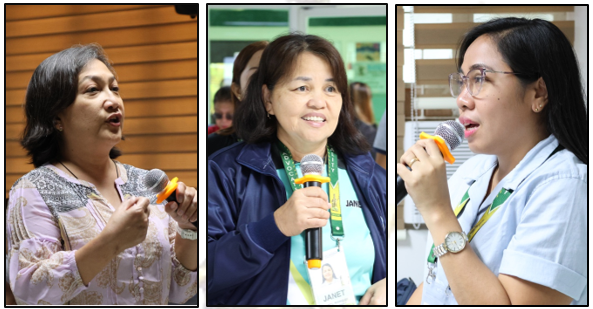
Mr. Agreda also provided an in-depth explanation of the four entry points of the GMEF which as are as follows: Policy which includes official declarations of support, policy enhancements, and the application of GAD frameworks; People which involves the leaders, advocates, and participants engaged in gender mainstreaming, with an emphasis on management support and the recognition of GAD expertise; Enabling Mechanisms which comprise the GFPS, gender-disaggregated data, GAD monitoring and evaluation systems, and knowledge management structures; and Programs, Projects, and Activities (PPAs) which is an entry point that encompasses policy reviews, the development of gender-sensitive programs, information, education, and communication (IEC) campaigns, and maintaining updated GAD information resources.
In conclusion, Mr. Agreda presented practical examples and descriptors for each of the GMEF’s entry points, thereby equipping participants with a robust understanding of how to apply the framework within their respective colleges or units.
The event officially concluded with a closing message delivered by Ms. Todoc, on behalf of the GADRC Director, where she extended her gratitude to all the participants who actively engaged on the said activity which aims to further improve the services and mainstreaming efforts of the university in advancing gender and development.
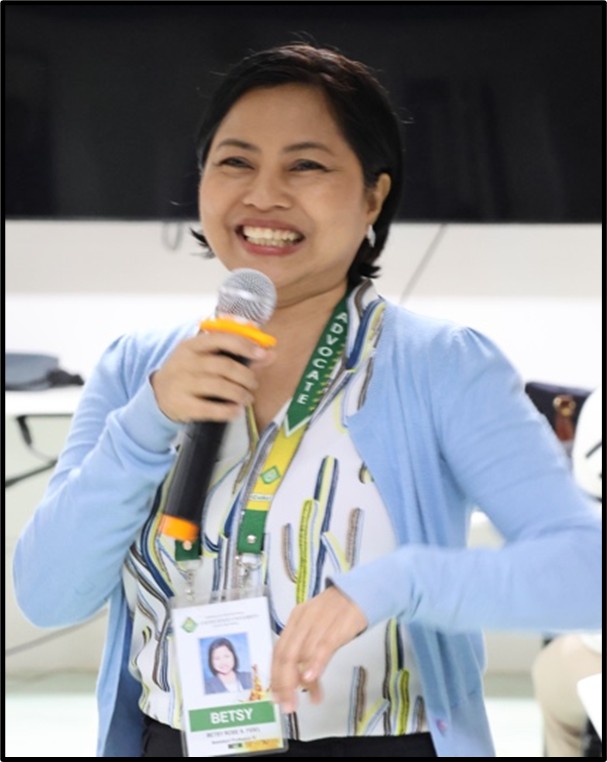
Ms. Betsy Rose S. Fidel served as the moderator for the two-day event.
